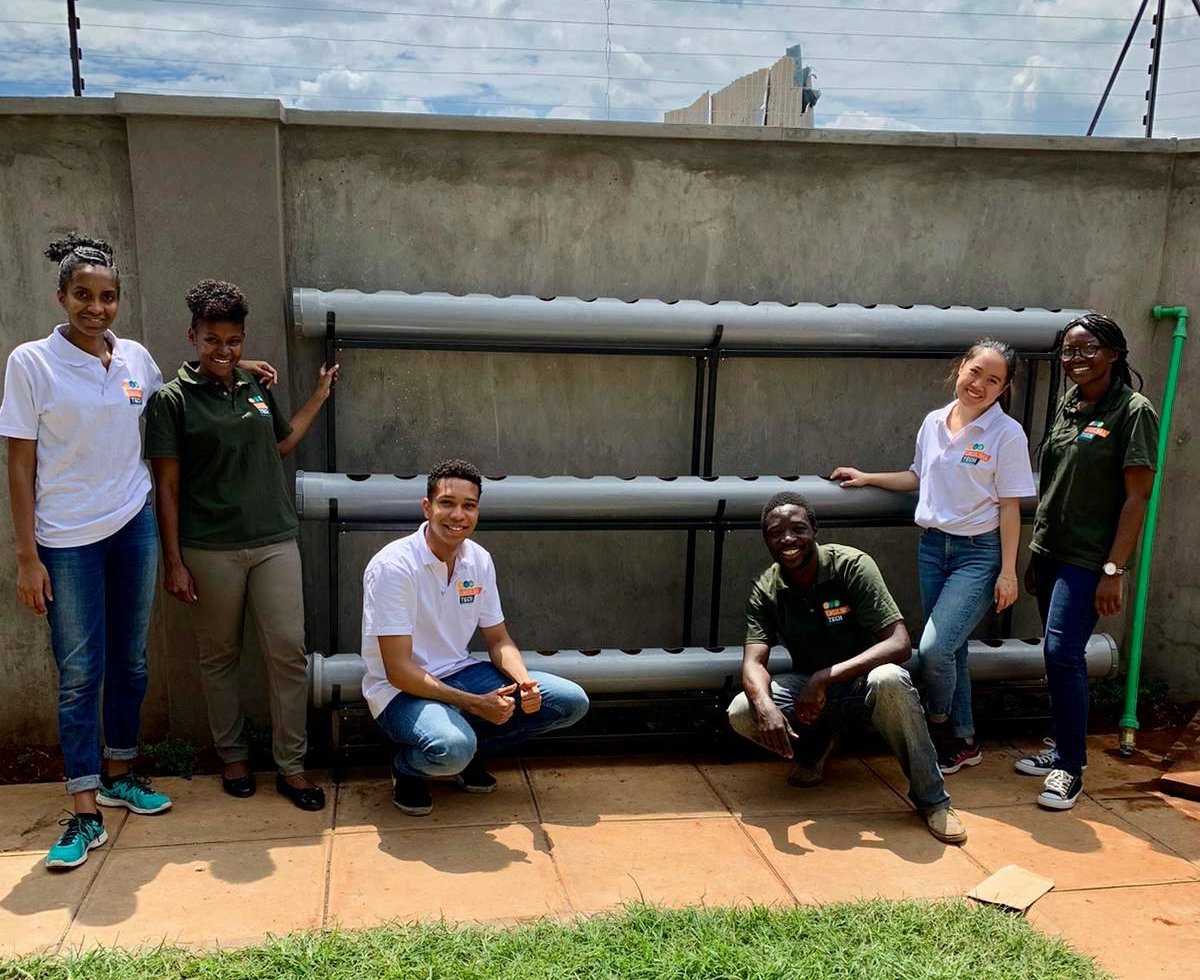Students get to work on vertical horticulture in Kenya
Three students with different background worked together a unique Leiden-Delft-Erasmus universities minor program in Kenya aboiut vertical gardens. For Rebecca Baugh, Architecture student, it was her first opportunity to take part in the realisation of a full-scale project. ‘My first chance to be involved in the design of a full-sized project allowed me to learn about the nuances of working in a specific context and take local materials and needs into account.”
The students Alesha Wong (Erasmus), Dylan Clementia (Leiden) and Rebecca Baugh (TU Delft) joined forces to work on a frugal innovation project in Kenya. They brought together expertise from their respective disciplines - economics, international relations and architecture - to make real social impact by translating theory into practice for sustainable global development. They travelled to Kenya to help Ukulima Tech with their mission to help people that are affected by food insecurity challenges. Ukulima Tech believes that a healthy, organic and sustainable lifestyle can be achieved through their Vertical Gardens. In Nairobi, a city with scarcity of land, the Vertical Gardens provide consumers with the ability to grow their own herbs and vegetables with minimal inputs of water, labour and land space.
Redesigning innovation
For Rebecca Baugh it was her first opportunity to take part in the realisation of a full-scale project. “We got the freedom to be creative and experimental with materials and redesigned the vertical gardens structure with bamboo instead of steel. While the lowered price was not significant enough, in the end, we learned from it and were able to adapt the product design. For example, towards the end of our internship, we were able to offer smaller hanging gardens that were more accessible for people with lower incomes and practical for a variety of urban spaces.”
Different backgrounds
Alesha Wong explains how this challenge allowed all three students to contribute using their core strengths. “Personally, coming from a business background where innovation is mostly data-driven, it was refreshing to think of innovating from different perspectives and combine the power of different minds.” To Dylan Clementia, who studied International Relations and Organisations at Leiden University, the minor provided important lessons in communications. “One of my great takeaways was learning about the importance of communications, especially for people with different backgrounds. We could learn about the cultural and contextual nuances such as the local Kenyan working culture, as well as working in a multidisciplinary Leiden-Delft-Erasmus team.”
More information
Each year, the LDE Centre for Frugal Innovation in Africa organises a unique minor program ‘Frugal Innovation for Sustainable Global Development for bachelor students. In this minor, students from across the Leiden-Delft-Erasmus Universities come together to participate in a multidisciplinary environment that combines theory, practice and social engagement.
- Read the full article published on the LDE website here.
- More information about the minor: Minor FI4SGD | Centre for Frugal Innovation in Africa.
- More about Ukulima Tech | Centre for Frugal Innovation in Africa.

